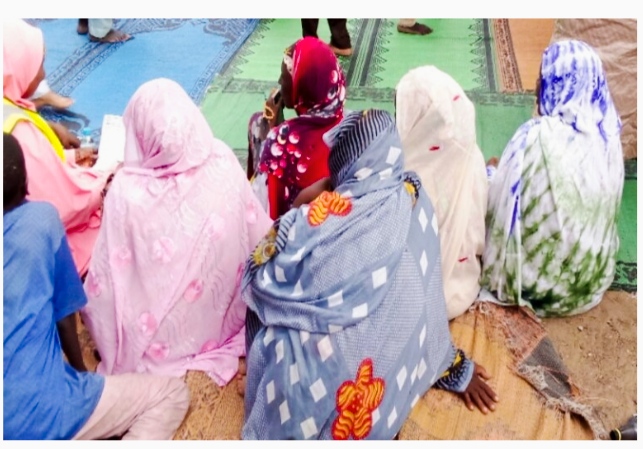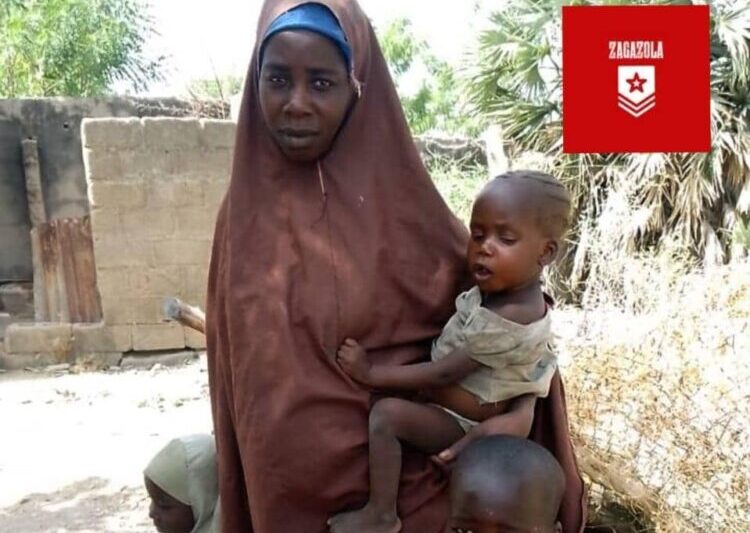It’s not only women who are the victims of gender-based violence (GBV) – it’s also young girls, who are even more vulnerable if they’re poor and have to rely on hawking on the sides of the streets where they are exposed to extreme danger.
The Borno State government held a GBV awareness campaign on Sunday, February 20, to enlighten parents about the perils their children, especially their daughters, faced.
The campaign was held in the Mashamari community in the Jere Local Government Area, where authorities had noticed a surge in the number of GBV cases.
Parents were urged to keep an eye on their children and try to ensure they were not in any danger.
RNI reporter Fatima Grema Modu spoke to one of the mothers who attended the event.
Falmata Abubakar said she found the campaign very enlightening and she had learnt a lot.
“I was taught how to train my children better to be on the lookout and to keep away from dangerous situations, and to watch over the way they dress. They also told us how to report cases of gender violence immediately for the right of the victims. They told us not to hide or keep silent because of the fear of being stigmatised.”
Ba Goni Mustapha, a participant, said that as mother, women had a special bond with children, especially girls. But he urged fathers to also be on the lookout for their children and try to keep up with their whereabouts.
“Whenever girls are back from school, parents should inquire about their day and any place they went. They should ensure their children’s safety by checking their phones to see who they are interacting with and the type of friendships they have because this will help eradicate GBV acts in the society.”
Bulama Laminu Abdullahi, the community leader of Mashamari, told RNI that that traditional leaders had heard about the spike in the number of GBV cases and were concerned and committed to trying to find a solution.
“Recently we heard of three cases. In one of them a boy violated and impregnated a girl. He tried to run away but we reported him to the police and the issue has been dealt with.”
He said poverty played a major role in GBV. “Girls are sent to hawk goods at the side of the street and some are sent to beg. When they are there they are in danger. Even walking to the streets and back again is dangerous. I think the main contributors to GBV are that many parents are illiterate, ignorant and negligent.”
Hajiya Inna Galadima, the former commissioner for women affairs in Borno State and founder of the Inna Galadima Humanitarian Foundation, said the community needed to work together and contribute positively to help eradicate GBV.
“Parents should watch over their children and, if they went out, they should not leave the kids alone without someone to take care of them.”
She suggested that members of the foundation should go to people’s homes to enlighten them about the dangers and on how best to tackle GBV.
A report by UN Women said violence against women and girls was a human rights violation, and the immediate and long-term physical, sexual and mental consequences could be devastating, including death.
“Survivors of GBV suffer devastating short- and long-term consequences to their physical and mental health. Women and girls may experience severe physical injuries, unwanted pregnancies and exposure to HIV or other sexually transmitted infections. Depression, anxiety, post-traumatic stress disorder [PTSD], the limited ability to complete daily tasks and suicidal thoughts are also common,” the United Nations Children’s Fund (UNICEF) said.








